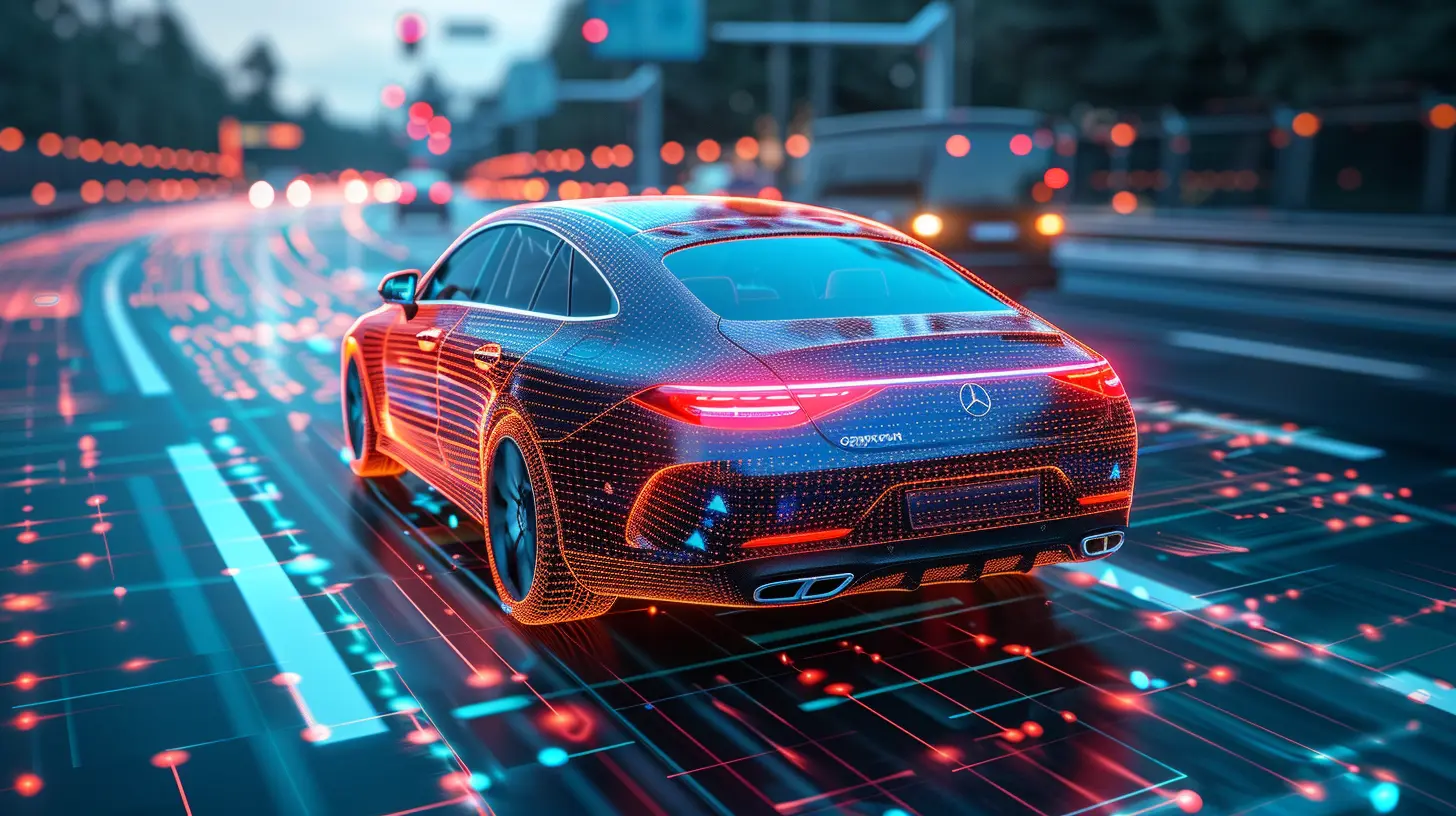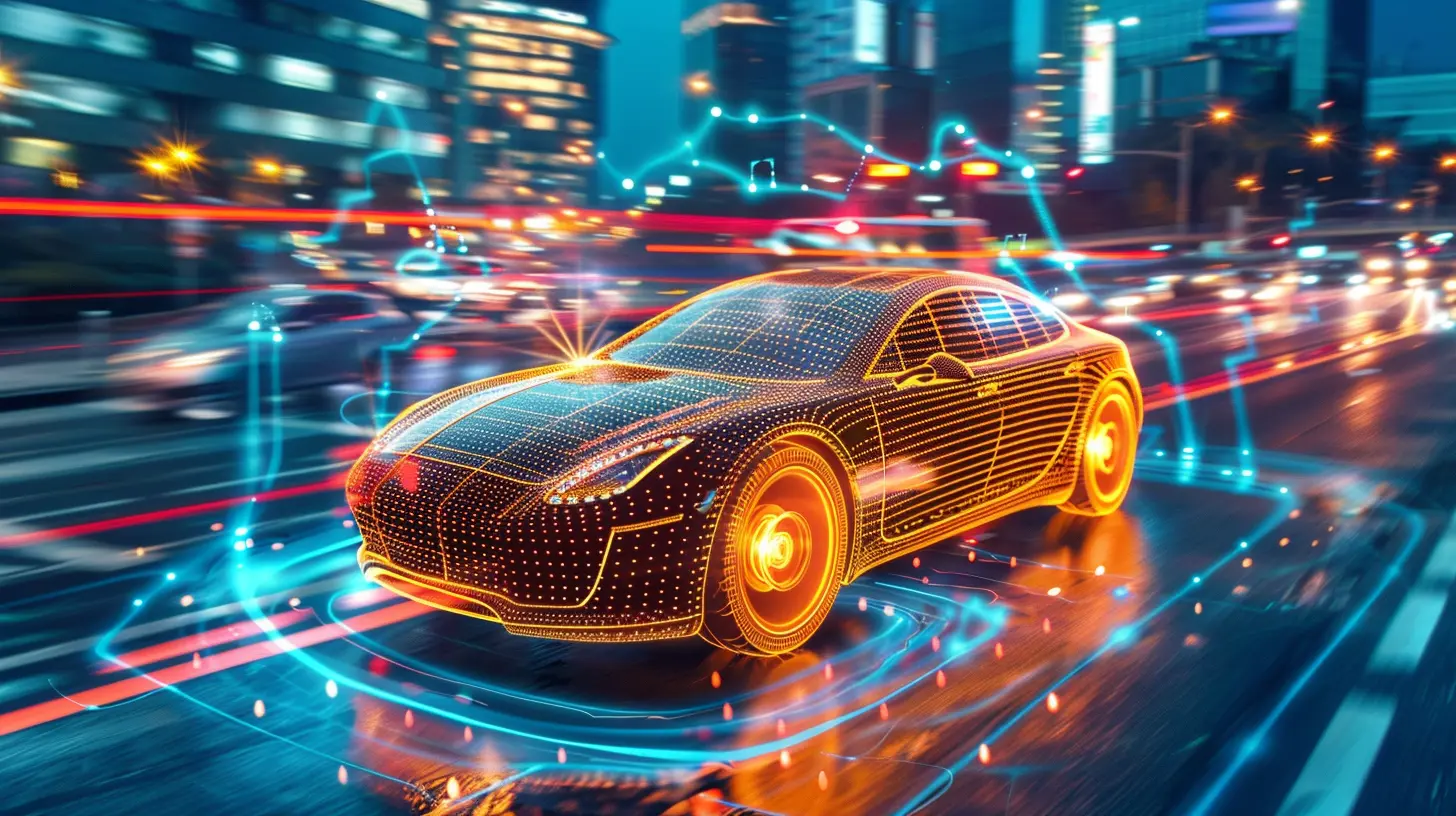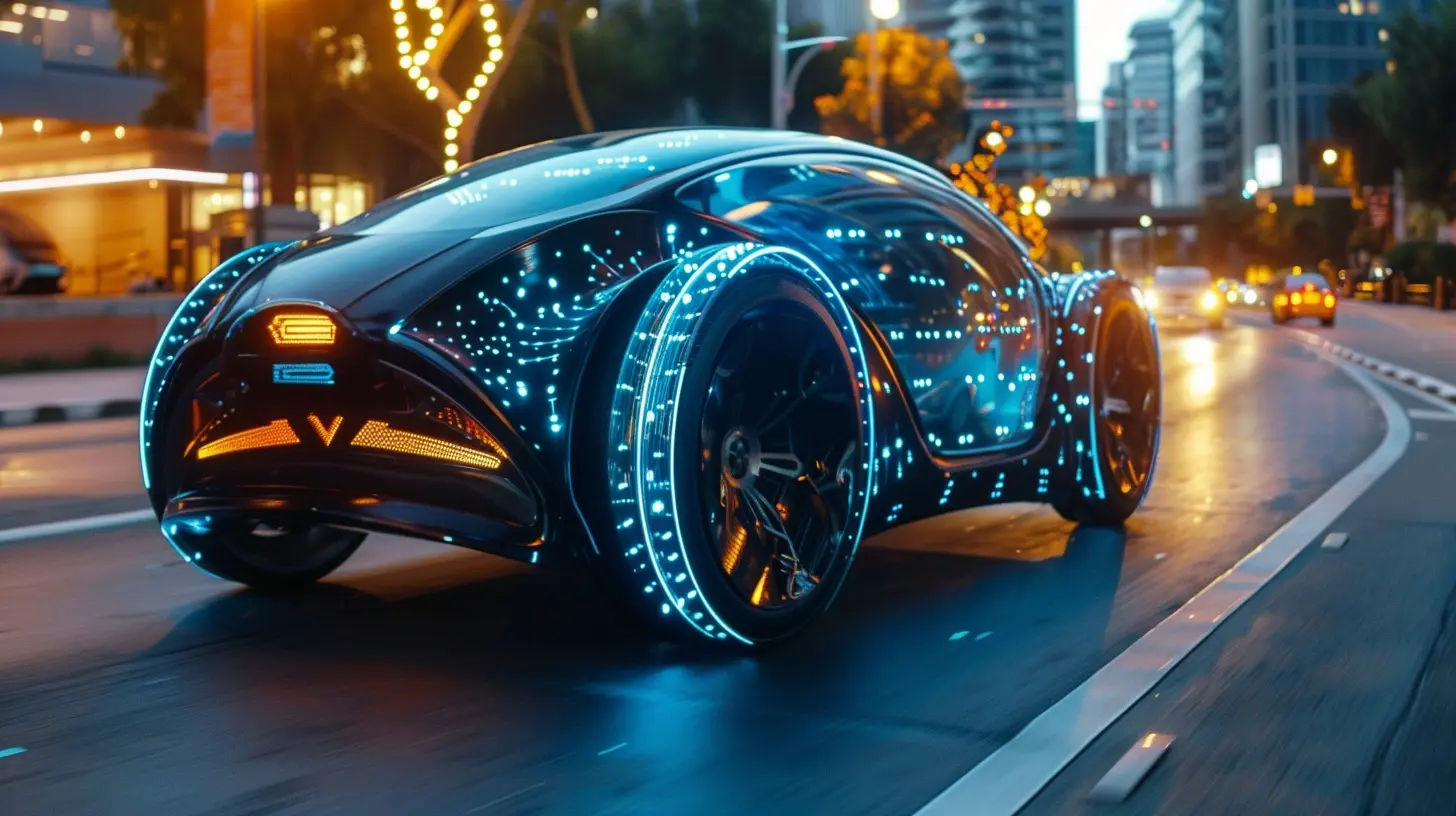Quantum Computing's Potential Impact on Autonomous Vehicles
3 November 2025
Autonomous vehicles (AVs) are already making waves in the tech world, but what if we told you that quantum computing could take them to a whole new level? Sounds futuristic, right? Well, it's not as far off as you might think.
Quantum computing has the potential to revolutionize how self-driving cars process data, make decisions, and interact with their surroundings. In this article, we'll dive into how quantum computing could supercharge autonomous vehicles, making them faster, smarter, and even safer.
Let’s buckle up and take a ride into the future of transportation! 
🚗 The Current Challenges of Autonomous Vehicles
Before we get into quantum computing, let’s talk about the hurdles self-driving cars face today. While companies like Tesla, Waymo, and GM Cruise have made impressive strides, AVs still struggle with:- Real-time Decision-Making: Processing massive amounts of data in milliseconds is tough for classical computers.
- Complex Traffic Scenarios: Unexpected situations, like a child suddenly running into the road, are difficult to predict.
- Sensor Limitations: Cameras, LiDAR, and radar have their limits, especially in bad weather.
- Cybersecurity Risks: More software means more vulnerabilities to hacking.
These issues are slowing down the widespread adoption of AVs. But what if quantum computing could be the game-changer? 
🔍 What is Quantum Computing? (And Why Should You Care?)
Alright, let’s keep this simple. Classical computers use bits (0s and 1s) to process information, but quantum computers use qubits. Unlike regular bits, qubits can exist in multiple states at once—thanks to two mind-bending principles of quantum mechanics:- Superposition: Qubits can be both 0 and 1 at the same time, allowing quantum computers to perform multiple calculations simultaneously.
- Entanglement: Qubits can be "linked" regardless of distance, helping them share information instantly.
In short, quantum computers don’t just compute faster; they compute differently—which could help solve some of the trickiest problems in AI and autonomous driving. 
🏎️ How Quantum Computing Can Supercharge Autonomous Vehicles
Quantum computing isn't just about speed—it's about solving complex problems that classical computers struggle with. Here’s how it could transform self-driving cars:1. 🚦 Ultra-Fast Decision-Making
AVs need to process insane amounts of data in real time—traffic signals, pedestrians, road conditions, other vehicles—you name it. Classical computers process this data sequentially, creating slight delays.Quantum computers, on the other hand, can analyze multiple scenarios simultaneously. This could drastically cut down decision-making time, making AVs more responsive and safer on the road.
Imagine an AV approaching an intersection with five different possible routes. A classical computer would analyze each route one by one, while a quantum computer could evaluate all options at once—like having a supercharged GPS that calculates the best route instantly.
2. 🛑 Solving Complex Traffic Scenarios
Human drivers rely on intuition and experience to react to unpredictable situations. AVs? Not so much. They rely on algorithms that often struggle with rare or complex scenarios—like a deer suddenly jumping onto the road.Quantum computing can process probability-based models much better than classical systems. By analyzing millions of possible outcomes at once, quantum-powered AVs could predict and react to unexpected situations with lightning speed.
3. 📡 Enhancing Sensor Processing
Self-driving cars rely on sensors like LiDAR, radar, and cameras to "see" their surroundings. But these sensors can become unreliable in fog, heavy rain, or low-light conditions.Quantum computing could optimize sensor fusion, combining data from multiple sources with extreme precision. This would help AVs make better sense of their environment, even in challenging conditions.
Think of it like this: If classical computers are reading a blurry road sign letter by letter, a quantum computer scans the entire sign instantly and fills in the gaps using all available data.
4. 🔐 Strengthening Cybersecurity
AVs are essentially computers on wheels, making them vulnerable to cyberattacks. A hacker taking control of a self-driving car sounds like a sci-fi horror movie—but it’s a real risk.Quantum encryption takes cybersecurity to the next level. Thanks to quantum mechanics, encrypted messages can’t be intercepted without altering the data itself. This could protect AVs from cyber threats, ensuring safer rides for everyone.
5. ⚡ Optimizing Traffic Flow
Ever been stuck in awful traffic and thought, "There has to be a better way!"? Quantum computing could be the answer.By instantly analyzing vast amounts of real-time traffic data, quantum-powered AVs could communicate with each other and optimize traffic flow. This means fewer traffic jams, reduced travel times, and lower emissions.
Think of it like a smart city where cars "talk" to each other and coordinate their movements seamlessly—kind of like a flock of birds flying in perfect sync. 
🚀 When Can We Expect Quantum-Powered Autonomous Vehicles?
We’re not there yet, but progress is happening fast. Companies like Google, IBM, and D-Wave are making big strides in quantum computing, and major automakers are already exploring its potential for AVs.While fully quantum-powered AVs might still be a decade or two away, hybrid models (combining classical and quantum computing) could emerge much sooner.
💡 The Future Is Quantum
Quantum computing has the potential to redefine what’s possible for autonomous vehicles. From real-time decision-making to enhanced cybersecurity, it could be the missing piece to unlocking truly safe and efficient self-driving cars.Will quantum-powered AVs be the future of transportation? Only time will tell. But one thing’s for sure—the road ahead looks exciting!
What do you think? Would you trust a quantum-powered self-driving car? Let us know in the comments!
all images in this post were generated using AI tools
Category:
Quantum ComputingAuthor:

Reese McQuillan
Discussion
rate this article
1 comments
Betsy Jacobs
Exciting possibility; challenges remain for practical implementation.
November 3, 2025 at 5:59 AM

Reese McQuillan
Thank you for your insight! Indeed, while the potential is great, addressing implementation challenges is crucial for realizing quantum computing's benefits in autonomous vehicles.


